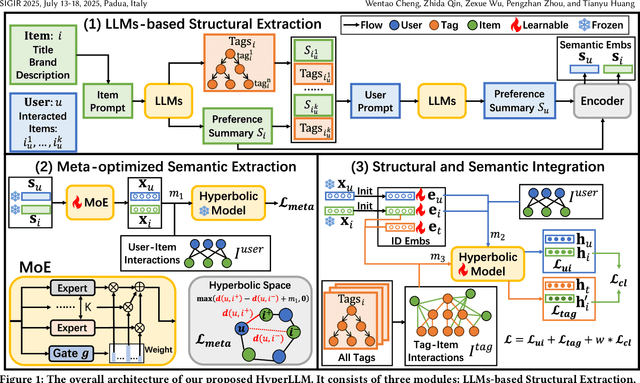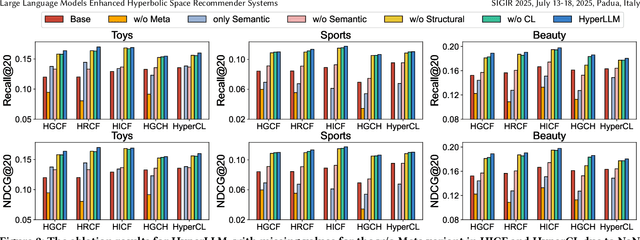Large Language Models Enhanced Hyperbolic Space Recommender Systems
Paper and Code
Apr 08, 2025



Large Language Models (LLMs) have attracted significant attention in recommender systems for their excellent world knowledge capabilities. However, existing methods that rely on Euclidean space struggle to capture the rich hierarchical information inherent in textual and semantic data, which is essential for capturing user preferences. The geometric properties of hyperbolic space offer a promising solution to address this issue. Nevertheless, integrating LLMs-based methods with hyperbolic space to effectively extract and incorporate diverse hierarchical information is non-trivial. To this end, we propose a model-agnostic framework, named HyperLLM, which extracts and integrates hierarchical information from both structural and semantic perspectives. Structurally, HyperLLM uses LLMs to generate multi-level classification tags with hierarchical parent-child relationships for each item. Then, tag-item and user-item interactions are jointly learned and aligned through contrastive learning, thereby providing the model with clear hierarchical information. Semantically, HyperLLM introduces a novel meta-optimized strategy to extract hierarchical information from semantic embeddings and bridge the gap between the semantic and collaborative spaces for seamless integration. Extensive experiments show that HyperLLM significantly outperforms recommender systems based on hyperbolic space and LLMs, achieving performance improvements of over 40%. Furthermore, HyperLLM not only improves recommender performance but also enhances training stability, highlighting the critical role of hierarchical information in recommender systems.
 Add to Chrome
Add to Chrome Add to Firefox
Add to Firefox Add to Edge
Add to Edge